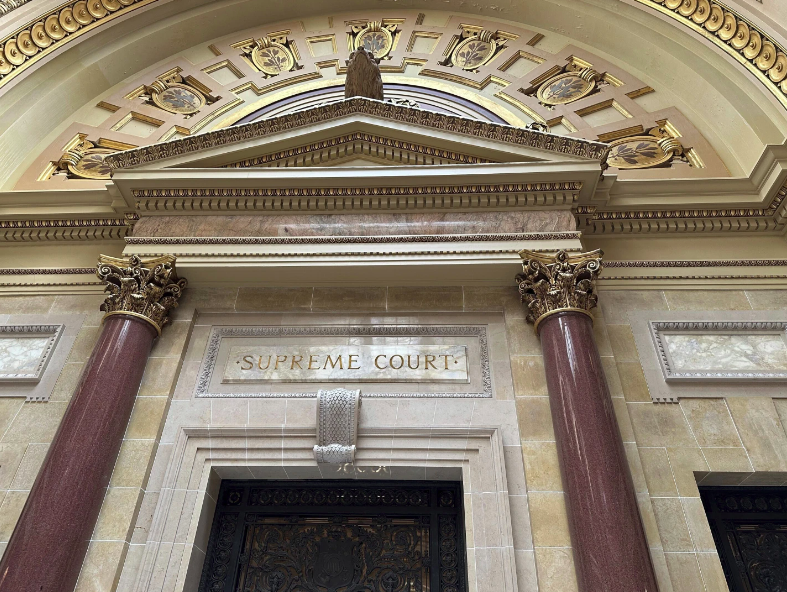As the United States prepares to elect its 45th president, issues surrounding the place of religion in American public life are at the heart of some of the most contentious debates in American culture. There are competing visions of what “religious freedom” means and whether there is any place for religion outside of individual private worship. The implications are numerous, from issues of marriage and abortion, to higher education and business.
Based on the candidates’ background, policy statements, and your own analysis, how will they handle issues of domestic religious freedom as the next president of the United States?
To see all posts in this series visit: Election 2016: Domestic Religious Freedom
The rational case for supporting Donald Trump’s presidential bid mostly comes down to a single argument: the judiciary. Nearly all of the other arguments are some distasteful mixture of hysteria, resentment, and delusion. But Trump has promised to appoint conservative justices to the Supreme Court. And it’s genuinely possible that he would.
This is clearly no sure bet. Trump is not (to put the point mildly) a man of good or reliable character, and it would be rash to assume that we can trust him to follow through on his promises. Still, he might. Hillary Clinton would undoubtedly appoint very liberal justices, so it would be better, all else being equal, to take a chance with Trump’s judicial appointments.
Conservative justices would likely be friendly cause yeof religious liberty. That is no small thing. Religious conservatives need to make their decisions with eyes open, however. Trump himself has no interest in protecting religious freedom. We cannot expect any direct assistance from him, and it’s anyone’s guess whether a Trump-led Republican Party would continue even the pretense of championing the cause of religious freedom.
To appreciate Trump’s position on religious liberty, we need not engage in speculative psychologizing. Many understandably doubt the sincerity of Trump’s pro-life convictions, but on this point he has at least gone to the trouble of mouthing the correct words. He has made no such effort with religious liberty. On a generous reading of his statements, one might imagine that Trump simply doesn’t care about religious freedom, and perhaps doesn’t understand what is at stake. A more plausible interpretation suggests that he actively favors progressive efforts to drive religious conservatives out of the public square wherever their beliefs conflict with progressive pieties.
For obvious reasons, hasn’t made this a central feature of his campaign. Still, it’s not really hidden. It seems altogether likely that a President Trump would support the Equal Employment Opportunity Commission’s ever-more-aggressive efforts to prosecute religious believers who refuse to yield to demands of “sexual minorities” seeking universal affirmation of their lifestyle choices. It’s difficult to say what other cultural conflicts may arise over the next four years, but this much we can predict with confidence: Trump will not be the bulwark that rescues people of faith from marginalization.
Again and again, he demonstrates that his sympathies lie with progressives in the culture wars. He ultimately waffled on North Carolina’s transgendered bathroom law, but his immediate impulse was to criticize the state for infringing on the rights of the transgendered. At his June meeting with Evangelical leaders, he was asked his views on lawsuits against bakers or photographers who decline to serve same-sex weddings. Trump’s response was to mention his promises with respect to the judiciary, and to observe that judges would be important because the status quo “is not looking very good for you.” Then he changed the subject.
Notably absent from that answer was any indication whatsoever that Trump himself supports religious conservatives on this issue. “The people I appoint may stand with you on this matter, though I myself do not,” is the implication.
In his speech at the Values Voter Summit in September, Trump’s discussion of religious liberty focused solely on his promises to repeal the Johnson amendment, thus permitting pastors and churches to explicitly endorse parties or candidates. As he explained, it distressed to him to learn that pastors who supported his candidacy were unable to endorse him without losing their tax-exempt status. He means to address that. Having made that promise, though, Trump transitioned to talking about education, tax policy, crime, and a laundry-list of other issues. There was no mention of religious freedom.
Donald Trump has spent virtually his whole adult life in a liberal social world. His children all appear to be social liberals. He and his campaign appears to share Peter Thiel’s contemptuous view of the “fake culture wars” as paranoid, anachronistic temper tantrums that we need to get past for the sake of building a glittering technocratic paradise. It is possible of course that Trump’s hostility to people of faith would be less than his opponent’s. Let’s not kid ourselves, though. Trump’s takeover of the GOP represents a serious loss for the cause of religious freedom.
Rachel Lu is a senior contributor at the Federalist and Robert Novak Fellow. She has a PhD in philosophy from Cornell University and teaches at the University of St Thomas.
**All views and opinions presented in this essay are solely those of the author and publication on Cornerstone does not represent an endorsement or agreement from the Religious Freedom Institute or its leadership.**
THE RFI BLOG

How Soccer Reveals Different Meanings Of ‘Secular’ In France And The US

RFI’s Ismail Royer Meets with Delegation from India

Protecting the Unborn, Mothers, and Medical Ethics: The Stakes of Arkansas’ Amendment

Wisconsin Supreme Court Punishes Catholic Charities for Serving Everyone

Wisconsin Supreme Court Decision Truncates Religion
CORNERSTONE FORUM

Public Bioethics & the Failure of Expressive Individualism

Religious Liberty in American Higher Education

Scotland’s Kate Forbes and the March of Secularism

70 Years of Religious Freedom in Sweden: Prospects and Challenges


